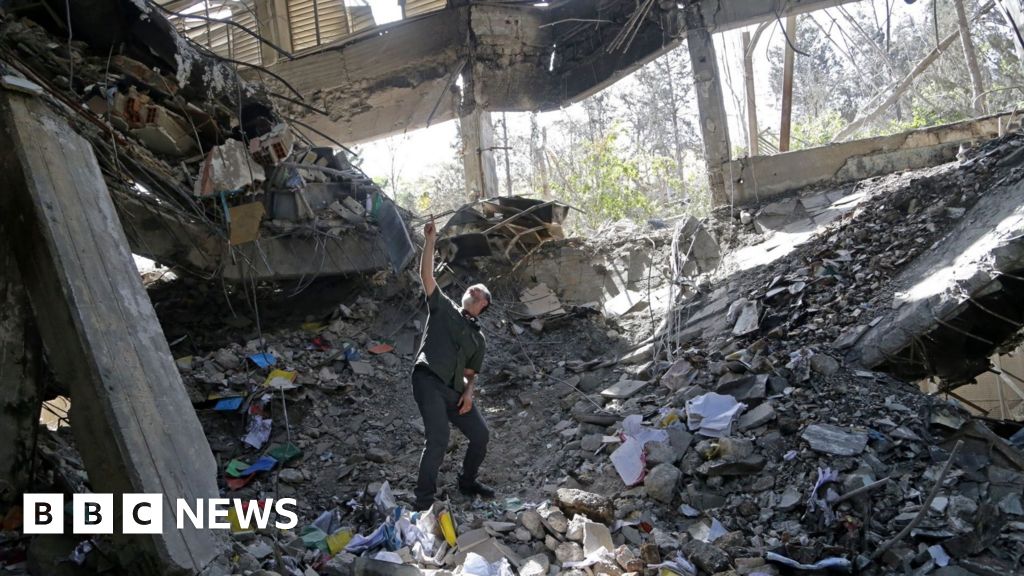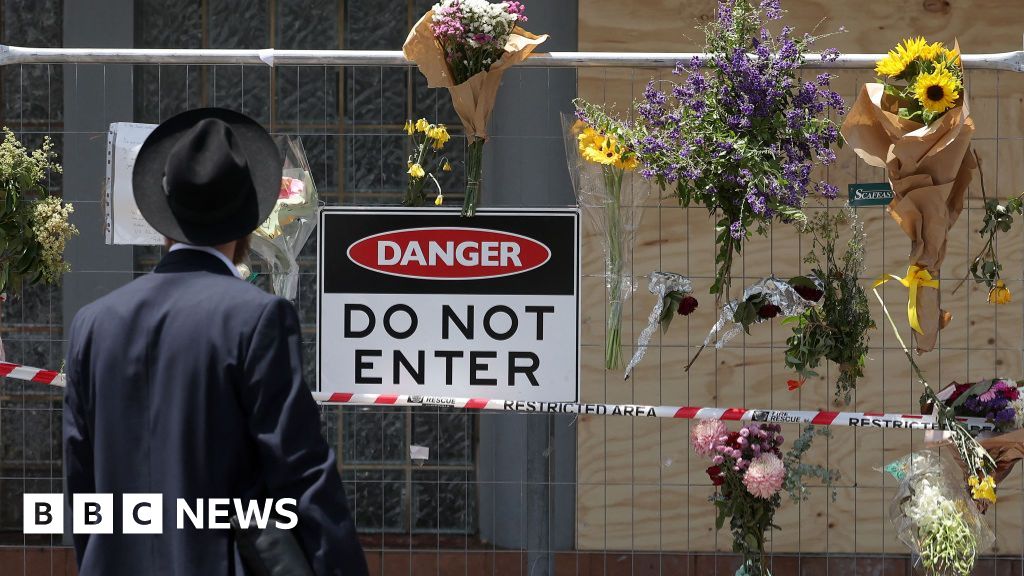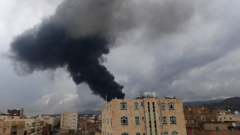As the camera pans across a sea of grieving black-clad attendees at a Tasua mourning ceremony in Tehran, the atmosphere thickens with solemnity. Yet, a surprising twist emerges: Iran's supreme leader, Ayatollah Ali Khamenei, whispers to a singer who promptly launches into “Ey Iran, Iran,” a stirring patriotic anthem that once felt out of place in such religious rituals.
The solemn crowd, despite their grief over the recent 12-day war that has left the nation battered—its military weakened and civilian morale shaken—chant back the lyrics, igniting a flicker of nationalist pride among them. The war's toll has been devastating, with significant casualties and damage to Iran’s military capabilities and nuclear aspirations.
However, amid this devastation lies an opportunity. Outrage over the war has sparked a renewed sense of nationalism which Iran's leaders aim to harness to revitalize their government during an economic downturn and political unrest.
Once trapped in a tension between religious conservatism and secular nationalism, the Iranian regime is now weaving historical folklore and patriotic symbolism into its narrative. This shift, seen as a bid to reclaim cultural identifiers that were historically relegated to secularists, aims to unify the nation under a common banner as they navigate a tumultuous landscape.
As the chants echo across the city, Iran's ruling class seems committed to utilizing this moment of national pride to strengthen their grip on power amidst formidable challenges on both domestic and international fronts.
The solemn crowd, despite their grief over the recent 12-day war that has left the nation battered—its military weakened and civilian morale shaken—chant back the lyrics, igniting a flicker of nationalist pride among them. The war's toll has been devastating, with significant casualties and damage to Iran’s military capabilities and nuclear aspirations.
However, amid this devastation lies an opportunity. Outrage over the war has sparked a renewed sense of nationalism which Iran's leaders aim to harness to revitalize their government during an economic downturn and political unrest.
Once trapped in a tension between religious conservatism and secular nationalism, the Iranian regime is now weaving historical folklore and patriotic symbolism into its narrative. This shift, seen as a bid to reclaim cultural identifiers that were historically relegated to secularists, aims to unify the nation under a common banner as they navigate a tumultuous landscape.
As the chants echo across the city, Iran's ruling class seems committed to utilizing this moment of national pride to strengthen their grip on power amidst formidable challenges on both domestic and international fronts.
















